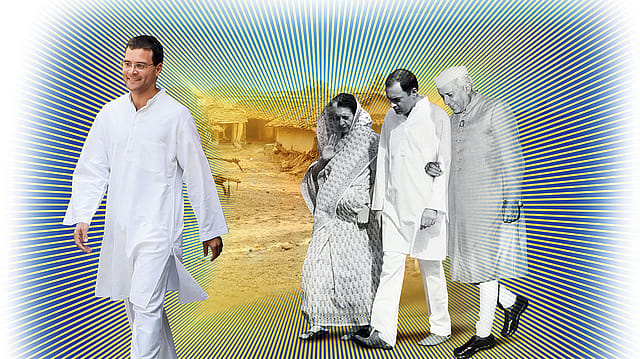Why Rahul Gandhi should go
ADVERTISEMENT

Most of those who watched Rahul Gandhi’s brief interaction with the media after the sound drubbing the Congress got at the hands of the Bharatiya Janata Party (BJP)-led National Democratic Alliance (NDA) will agree that he displayed commendable grace in defeat. He congratulated the ruling coalition, and accepted the overwhelming mandate given to the Narendra Modi-led government, saying he took full responsibility for his party’s disastrous showing.
As analysts started wondering whether Gandhi would quit in the wake of this terrible showing, what played out at the Congress was, to many, quite predictable. Rahul Gandhi offered to resign at a meeting of the Congress Working Committee, but that resignation was rejected unanimously, and he was given full freedom to reorganise the party. But few had reckoned that the resignation discussion would be as prolonged as it has now become. Rahul Gandhi, reports say, is insistent on stepping down even as he said he wasn’t “abandoning” the party chief’s position and would wait until the party chose a new leader.
In remaining firm on quitting, Rahul Gandhi is doing the right thing. If anything, there is an urgent need for accountability in the Congress party, long having lost its position as a truly national alternative to the ruling BJP. While Gandhi comes off as a gentleman, an affable sort and someone who is sincere and hardworking, his political chops continue to be in doubt.
This has been reinforced by the fact that his party, despite Gandhi crisscrossing the country during a bruising election campaign, managed to gain a paltry 8 seats more than 2014’s abysmal count of 44. So much so, that the Congress did not even manage to get the Leader of the Opposition slot once again this time. By choosing a campaign slogan targeting Narendra Modi personally and alleging he was corrupt, Gandhi misread the voter’s pulse entirely, something which he must take full accountability for as leader of the Congress campaign. The voter resoundingly rejected this line of his, with BJP itself ending up with 21 more seats than 2014, at a whopping 303. So much for anti-incumbency. In failing to stitch up alliances in crucial states like Uttar Pradesh and Bengal, Gandhi also showed that he may be genuine in his efforts but has still miles to go before he is regarded as an astute politician.
Perhaps the biggest blow the electorate delivered to Rahul Gandhi and the Congress brand was in Amethi, Gandhi’s home constituency. Regarded for decades as a virtual Gandhi family citadel, Rahul Gandhi was defeated soundly by BJP’s Smriti Irani, by a margin of over 55,000 votes. Wayanad in Kerala, where Gandhi won from, turned out to be the much-needed face-saver.
Gandhi wasn’t alone in defeat. Jyotiraditya Scindia, his colleague, lost his seat from Guna, as did others like Jitin Prasada and Priya Dutt. Several other Congress heavyweights across the country—including Ashok Chavan and Sushil Kumar Shinde in Maharashtra (both former chief ministers)—were defeated. The signal sent by the electorate for Rahul Gandhi couldn’t have been clearer. Congress is no longer a party of choice.
It is then natural that, having failed to deliver for the second successive time, despite having full freedom as party president, Rahul Gandhi should step down and a new leader brought in. As long as the Congress clings to the Gandhis to lead them, new ideas will never come to the forefront, and the party will run the risk of repeating the same narrative election after election as the BJP, stronger this time than ever before, targets those areas where it still doesn’t have much of a stronghold. BJP has made big inroads in Bengal, and will now target Odisha and the pockets of the south where it has not been able to make a dent. In such a scenario, having the same leadership at the Congress will be nothing short of a disaster. If Rahul Gandhi and his mates in the party are really serious about revitalising it, then he must be allowed to stand firm on his decision and a new leader elected. And as a former party president, he can always come in with ideas and suggestions and support the new leadership.
Across the world, even in the biggest corporations, founders and CEOs have been forced to step down or have done so when the companies floundered. Every CEO is responsible to the board of directors and to the shareholders, and should step down if he cannot deliver. Rahul Gandhi has failed to deliver. If he is accountable to the Congress and supporters of the party, he must be allowed to step down. It’s a challenge which the Congress party must take up immediately if it is to prevent itself from being consigned to the pages of history.